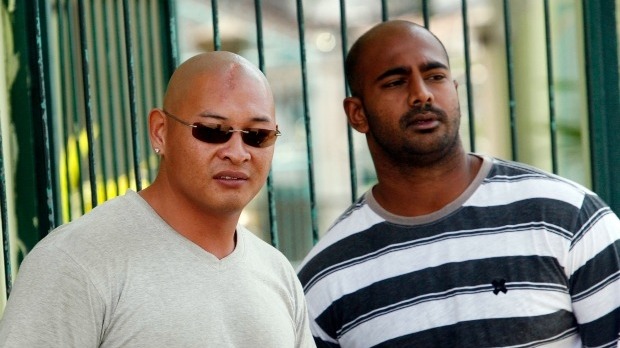Campaigns from the Heart
By John Warhurst
Personalised advocacy can be extremely effective in politics. Cardinal George Pell was at the centre of the recent hearing conducted in Rome by the Royal Commission into Institutional Responses to Child Sexual Abuse, but it was the Ballarat survivors of church abuse whose personal presence and shocking stories have created added momentum and political pressure for apologies and redress. The survivors were living testimony of the damage inflicted by the abuse. Pell, on the other hand, failed the test of personal empathy. In other commission hearings into institutional child sex abuse where the passing of time means that there are no surviving personal stories, or where privacy demands that the identity of the victims is hidden from view, the issues can appear much more abstract and so lack the same political impact. The general point is that personalised advocacy is one of the main characteristics of many of the major social campaigns now crowding the political agenda. Making the political personal may not guarantee success but it usually enhances the political arguments that are being made. Such personalised arguments can put the other side very much on the back foot. That is certainly the case with the campaign for legalisation of same-sex marriage. One of the strengths of the case for legal same-sex marriage is that it can be illustrated with the personal stories of loving couples who have a strong desire to marry. There is literally no end to such stories with which to enhance local, state and national campaigns. These examples can be supplemented with the personal accounts of family members supporting their children or siblings whose wish to marry is being prevented by the existing laws restricting marriage to heterosexual couples. Making the political issue personal can change hearts and thinking in a way that abstract arguments cannot. That may also be the case with the campaign for legalisation of euthanasia. This week the front-page human story of the Canberra couple seeking a dying person to challenge the prohibition on assisted suicide in court illustrated this point very well. But it may be harder to effectively personalise the euthanasia movement. The stories can be heart-wrenching but they may lack the widespread popular appeal of loving couples seeking to marry. The generational nature of the issue also means that it may be harder to engage the attention of younger Australians. The circumstances of the dying person may also limit their ability to be at the heart of a media campaign. Nevertheless, in a somewhat similar situation, the anti-asbestos campaigner Bernie Banton, who was himself terminally ill from the medical condition, was effectively at the centre of the campaign in 2007 for justice for victims of asbestos-related mesothelioma. Personalised campaigns are nevertheless multi-layered and their record of success is mixed because there are many other factors at play. The current campaign for constitutional recognition of Aboriginal and Torres Strait Islanders hasn't yet been able to make the same link with the personal aspirations of the Indigenous people concerned. Instead the campaign has been dogged by legal argument about the practical impact of various proposed constitutional remedies which generally loses the attention of the public. Unlike past land rights campaigns where the link was often clear and persuasive between the traditional owners and the claim in question the campaign for constitutional recognition has become more abstract. Individuals concerned can still talk persuasively about the human benefits to them of such recognition but it is harder to do so in a way that makes the issue really come to life for the general public. The same has been true for the campaigns on behalf of asylum seekers and refugees. Both sides in the debate have certainly recognised the power of the personal. This has led to government attempts over many years to keep the question abstract by denying reporters and photographers close contact with the human beings attempting to reach Australian shores. This has meant restricting access to detention centres such as Nauru to compliant media representatives. Pro-asylum seeker campaigners have done all they can to publicise the harrowing life stories of those denied entry into Australia, including women and children. Yet the state of play suggests that they haven't changed the minds of decision makers or the majority of the Australian public. There are other recent examples which demonstrate effectively going beyond statistics or abstract arguments. The personal tragedy of 2015 Australian of the Year Rosie Batty, for instance, gave special energy to her campaign against domestic violence. Her own story, involving the death of her son at the hands of his father spoke more than thousands of words about generalities. Many other such personal cases have added to the growing momentum against domestic violence. The campaign by Australians last year to save Andrew Chan and Myuran Sukumaran from the death penalty in Indonesia was ultimately unsuccessful but the personal stories of the two condemned men added enormously to the legal arguments. They certainly generated a change in Australian public opinion on the death penalty even if they couldn't persuade the Indonesian leadership to spare their lives. Wherever they can, campaigners now attempt to inject personal testimony into their campaigns because they realise how effective that can be; though it may not always be decisive because many other more general arguments come into play. It is also possible for personal advocacy to be unconvincing if it can be shown to be self-interested or unrepresentative of the general community. But it is now especially common in social policy campaigns where it poses particular challenges for defenders of the status quo. John Warhurst is an emeritus professor of political science at the Australian National University. Contact: John.Warhurst@anu.edu.au
|
.
Any original material on these pages is copyright © BishopAccountability.org 2004. Reproduce freely with attribution.
